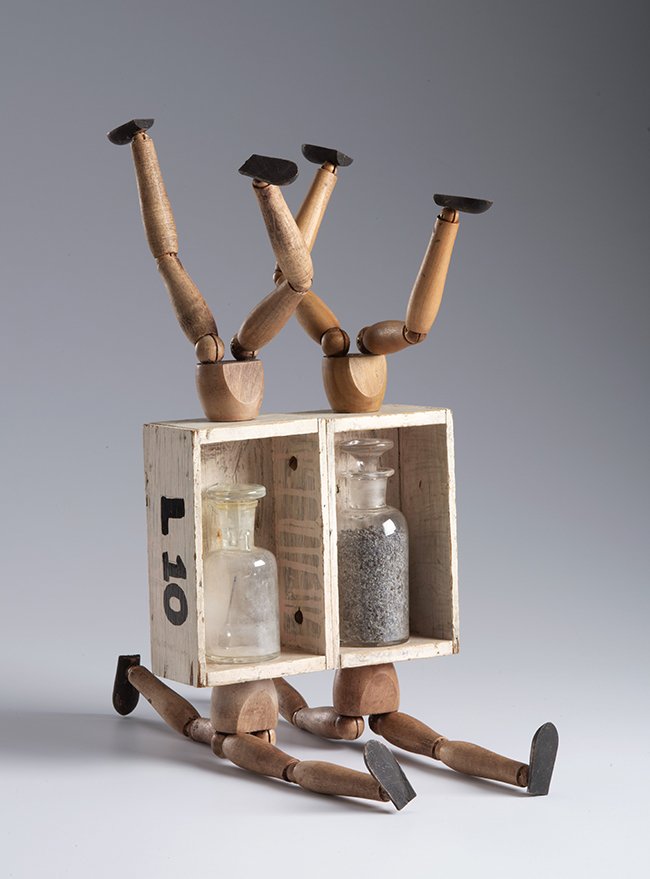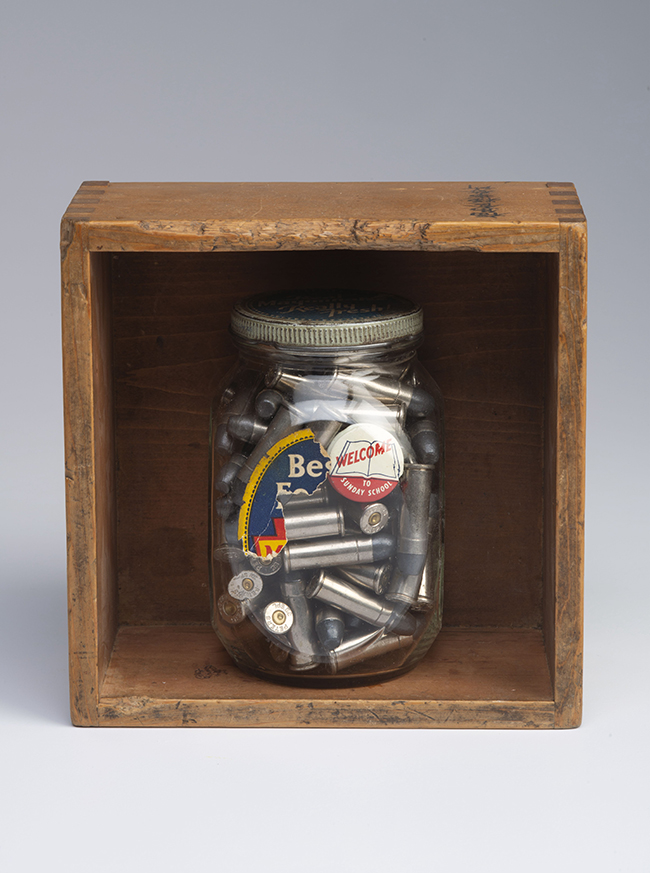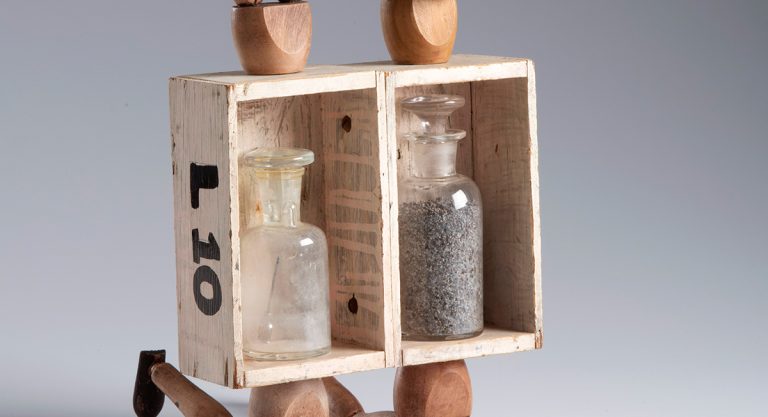Clint Imboden, a 3D artist from the San Francisco Bay Area, turns everyday objects into powerful explorations of societal issues. His sculptures blend nostalgia and commentary, often using hand tools, toys, and other mid-20th-century materials paired with etched text. Born in St. Louis, Clint grew up surrounded by his parents’ love for collecting Americana and kitsch. Today, that influence is evident in his artistic practice, which involves scouring flea markets and estate sales for discarded items. These finds, ranging from rusted shovels to vintage rulers, are brought to life in Clint’s Oakland studio, where they are transformed into sculptures and installations that challenge viewers to look deeper. His art addresses themes like addiction, gun violence, and cultural shifts, all while celebrating the hidden stories embedded in everyday objects.
The Weight of Addiction: Poppy Seed

In Poppy Seed (2024), Clint reflects on the profound impact of drug addiction, specifically heroin use. The assemblage features glass medical containers filled with poppy seeds and a single hypodermic needle. The materials evoke a stark contrast: the seeds, symbolic of opiates’ innocent beginnings, and the needle, a harrowing reminder of the destruction they can cause.
Clint’s background in community mental health deeply informs this piece. For a decade, he worked with individuals in court-based drug diversion programs and those dealing with co-occurring mental health and substance use disorders. His experiences reveal the fragile intersections of personal struggles and systemic failures, mirrored in the delicate glass containers that house the seeds and needle.
This minimalistic approach encourages viewers to connect with the piece on their terms. The arrangement tells a story of vulnerability and resilience, urging audiences to reconsider societal narratives around addiction. The juxtaposition of harm and potential healing underscores the complexity of this issue, leaving room for reflection and conversation.
Guns in Sacred Spaces: Welcome to Sunday School

In Welcome to Sunday School (2024), Clint tackles the troubling rise of gun violence in places once considered safe havens. The piece critiques the intrusion of violence into churches, juxtaposing the innocence of childhood religious experiences with the unsettling reality of metal detectors and security protocols in sacred spaces.
Clint recalls a time when church represented safety and guidance, a stark contrast to the current landscape of violence and inaction. The assemblage draws attention to the emptiness of statements condemning gun violence while no meaningful steps are taken to address it. By incorporating elements of religious iconography and subtle, unsettling details, Clint challenges the notion that these spaces are untouched by broader societal issues.
The title, Welcome to Sunday School, carries a dual meaning, blending nostalgia with a call to action. The work provokes difficult questions about priorities, societal responsibility, and the normalization of violence. Clint’s frustration is evident as he critiques the lack of progress on gun reform, making this piece as much a lament as a critique.
Breathing New Life Into Forgotten Objects
Clint’s art revolves around the transformation of overlooked materials. His creative process begins with a near-daily hunt through flea markets and estate sales. These excursions aren’t just about collecting objects—they’re about finding pieces that spark a narrative. A rusty shovel or a vintage toy might seem mundane, but in Clint’s hands, they become tools for storytelling.
In his studio, repetition plays a key role. Clint often gathers hundreds of similar items, arranging them into forms that abstract their original purposes. This technique turns the familiar into something unexpected, encouraging viewers to engage with the objects in new ways.
Using Materials to Speak
Clint’s art is deeply rooted in the significance of his materials. Each object carries cultural, historical, or emotional weight, and Clint amplifies these meanings by incorporating text. He began etching words into objects in the wake of the 2016 election, a practice that adds permanence to the transient messages of protest and dialogue.
Poppy Seed and Welcome to Sunday School exemplify Clint’s ability to distill complex issues into evocative forms. By using materials already laden with meaning, he invites audiences to question their assumptions and reflect on broader societal problems. His works do not shout for attention; instead, they quietly insist on being seen and considered.
Through his art, Clint transforms forgotten objects into symbols of larger narratives. His pieces challenge us to find meaning in the everyday, making each assemblage a doorway to deeper understanding. His work serves as a reminder that even the most ordinary materials can hold extraordinary stories.

